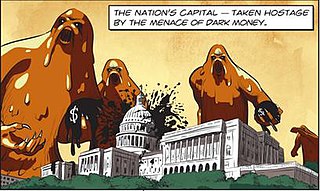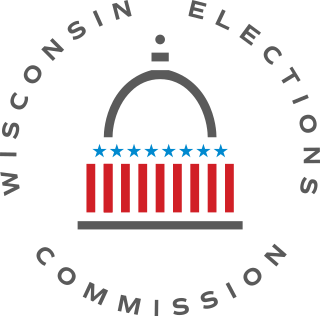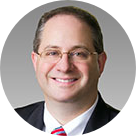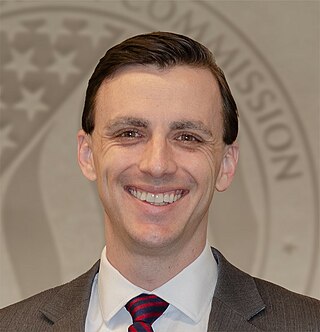Campaign finance laws in the United States have been a contentious political issue since the early days of the union. The most recent major federal law affecting campaign finance was the Bipartisan Campaign Reform Act (BCRA) of 2002, also known as "McCain-Feingold". Key provisions of the law prohibited unregulated contributions to national political parties and limited the use of corporate and union money to fund ads discussing political issues within 60 days of a general election or 30 days of a primary election; However, provisions of BCRA limiting corporate and union expenditures for issue advertising were overturned by the Supreme Court in Federal Election Commission v. Wisconsin Right to Life.

The Bipartisan Campaign Reform Act of 2002, commonly known as the McCain–Feingold Act or BCRA, is a United States federal law that amended the Federal Election Campaign Act of 1971, which regulates the financing of political campaigns. Its chief sponsors were senators Russ Feingold (D-WI) and John McCain (R-AZ). The law became effective on 6 November 2002, and the new legal limits became effective on January 1, 2003.
A 527 organization or 527 group is a type of U.S. tax-exempt organization organized under Section 527 of the U.S. Internal Revenue Code. A 527 group is created primarily to influence the selection, nomination, election, appointment or defeat of candidates to federal, state or local public office.

The Election Assistance Commission (EAC) is an independent agency of the United States government created by the Help America Vote Act of 2002 (HAVA). The Commission serves as a national clearinghouse and resource of information regarding election administration. It is charged with administering payments to states and developing guidance to meet HAVA requirements, adopting voluntary voting system guidelines, and accrediting voting system test laboratories and certifying voting equipment. It is also charged with developing and maintaining a national mail voter registration form.

The financing of electoral campaigns in the United States happens at the federal, state, and local levels by contributions from individuals, corporations, political action committees, and sometimes the government. Campaign spending has risen steadily at least since 1990. For example, a candidate who won an election to the House of Representatives in 1990 spent on average $407,600, while the winner in 2022 spent on average $2.79 million; in the Senate, average spending for winning candidates went from $3.87 million to $26.53 million.

Bradley A. Smith is the Josiah H. Blackmore II/Shirley M. Nault Professor at Capital University Law School in Columbus, Ohio. He previously served as commissioner, vice chairman, and chairman of the Federal Election Commission (FEC) between 2000 and 2005. He has held prior visiting appointments at Princeton University and West Virginia University. He is best known for his writing and activities on campaign finance regulation.

Ellen L. Weintraub is an American attorney who serves as a Commissioner on the Federal Election Commission.

Thomas J. Josefiak is an American lawyer who was Chief Counsel of Republican National Committee (RNC) and Chairman of the Federal Election Commission (FEC) during the 1988 U.S. presidential election. Josefiak is currently a partner with the law firm of HoltzmanVogelJosefiak PLLC in Washington, D.C.
Citizens United v. Federal Election Commission, 558 U.S. 310 (2010), is a landmark decision of the Supreme Court of the United States regarding campaign finance laws and free speech under the First Amendment to the U.S. Constitution. The court held 5–4 that the freedom of speech clause of the First Amendment prohibits the government from restricting independent expenditures for political campaigns by corporations, nonprofit organizations, labor unions, and other associations.

Matthew Spencer Petersen is an American attorney who served as a member of the United States Federal Election Commission. In 2017, he was nominated by President Donald Trump to be a United States district judge of the United States District Court for the District of Columbia. Petersen withdrew his nomination following a confrontational exchange with Senator John Kennedy during his confirmation hearing. On August 26, 2019, Petersen announced his resignation from the FEC, effective August 31. In September 2019, Petersen joined the law firm Holtzman Vogel Josefiak Torchinsky as a partner where he practices political law.

Caroline Critchfield Hunter is a former Republican member of the United States Federal Election Commission. She was appointed in June 2008, and served as chair in 2012, 2018, and 2020. On June 26, 2020, she resigned from the FEC, effective July 3, 2020, leaving the FEC without a quorum.

In politics, particularly the politics of the United States, dark money refers to spending to influence elections, public policy, and political discourse, where the source of the money is not disclosed to the public.

Ann Miller Ravel is an American attorney who was a Democratic Commissioner on the Federal Election Commission (FEC), an independent regulatory agency created by Congress to administer and enforce campaign finance law.

Lee E. Goodman was a member and former chair of the Federal Election Commission (FEC), an independent regulatory agency created by Congress to administer and enforce campaign finance law.

The Wisconsin Elections Commission is a bipartisan regulatory agency of the State of Wisconsin established to administer and enforce election laws in the state. The Wisconsin Elections Commission was established by a 2015 act of the Wisconsin Legislature which also established the Wisconsin Ethics Commission to administer campaign finance, ethics, and lobbying laws. The two commissions began operation on June 30, 2016, replacing the Wisconsin Government Accountability Board (GAB), which was abolished.

James Edwin "Trey" Trainor III is an American Republican lawyer and government official. He is a member of the Federal Election Commission after President Donald Trump nominated him and the Republican-controlled Senate confirmed him. He served as chair of the commission in 2020.

The Freedom to Vote Act, introduced as H.R. 1, is a bill in the United States Congress intended to expand voting rights, change campaign finance laws to reduce the influence of money in politics, ban partisan gerrymandering, and create new ethics rules for federal officeholders.

Sean Joseph Cooksey is a Commissioner and the current Chairman of the Federal Election Commission.
Shana M. Broussard is an American attorney who served as the chair of the Federal Election Commission (FEC) for 2021. She has been a Democratic member of the FEC since December 15, 2020.
Dara Lindenbaum is an American election lawyer serving as a commissioner of the Federal Election Commission (FEC). She was nominated in January 2022 and confirmed by the Senate in May 2022.














